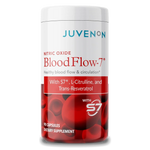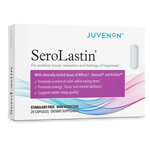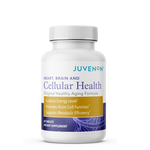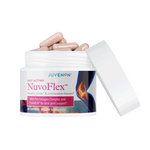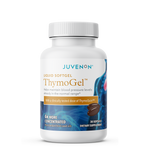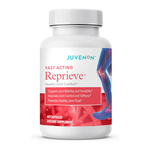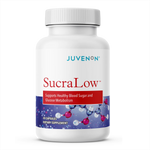
The circulatory system is made up of the heart, blood vessels, and blood. It moves blood to all parts of your body. Blood carries oxygen and nutrients to your cells and carries waste products away from them.
Poor circulation can lead to a number of health problems. Blood pressure is one of the most common health problems in the world today. It can cause a number of serious complications and lead to heart disease if not taken care of on time.
While there are medicines available for low blood pressure, it is always better to take natural steps before resorting to medication. Some of them include:
Add Walking To Your Daily Routine
Walking is a great way to improve circulation and maintain healthy blood pressure. There are several benefits associated with walking, such as:
- Lowering cholesterol
- Lowering triglycerides
- Lowering body fat
- Decreasing blood sugar levels
Additionally, walking can help you maintain a healthy weight and prevent diabetes. In addition to these health benefits, walking has been shown to help reduce the risk of cardiovascular disease by decreasing high blood pressure (hypertension).
Walking has also been shown to increase HDL ("good") cholesterol levels while lowering LDL ("bad") cholesterol levels in individuals with type 2 diabetes. This can be especially beneficial for those who are overweight or obese as well as those who have metabolic syndrome or prediabetes
Take Necessary Steps To Reduce Stress
When you're stressed, your body's autonomic nervous system triggers a series of events that cause blood pressure to rise.
As you may have guessed, this is not good. Stress has also been linked to heart disease and stroke. The first step in reversing this trend is recognizing that stress is a natural response—the body's way of preparing for danger—and then learning how to manage it effectively.
The simplest way? Exercise. Exercise helps reduce stress by increasing the production of endorphins (the "feel-good" neurotransmitters) in the brain. These chemicals trigger feelings of euphoria and calmness that can help counteract any negative emotions brought on by work or family drama during a stressful day at work or home life respectively.
Although there are many different strategies for reducing stress levels - including meditation, yoga, and visualization exercises - one of the best ways is simply by getting enough sleep every night.
Keep An Eye Out On Your Diet
If you want to maintain healthy blood pressure and circulation, you need to keep an eye on your diet.
Make Dietary Changes

A diet high in sodium and low in potassium can cause significant damage to the cardiovascular system, including raising blood pressure. In fact, if you make just one dietary change that is likely to have a big impact on your blood pressure: reduce the amount of salt you eat.
Focus on Fruits and Veggies
Fruits and vegetables are also rich in potassium and low in sodium (or contain negligible amounts), so they’re another good way to boost your potassium intake without adding too much sodium. Aim for at least 8 servings per day.
Here are some examples:
- Avocado (1 medium = 1 serving)
- Spinach (1 cup raw = 1 serving), cauliflower (1 cup = 1 serving).
- Banana (1 medium = 1 serving), sweet potato (1 cup diced = 1 serving),
- Cantaloupe melon (1 whole piece = 1/2 cup cubed).
Whole Grains
Whole grains are high in fiber, which helps keep your bowels healthy and lowers cholesterol levels in your blood. You should eat at least three servings of whole grains every day. Whole grains include brown rice, whole wheat pasta, oatmeal, and popcorn that has been popped in an air popper instead of oil.
Eat at Regular Times
Skipping meals increases the risk of hunger pangs that may lead you to overeat later on in the day. Eating small meals every 3 hours keeps your body fueled with energy throughout the day without storing fat unnecessarily in your body.
Consider Putting A Stop To Smoking and Drinking
Smoking and drinking are bad for your health—and for your blood pressure. Both can lead to an increase in blood pressure, which is especially dangerous for people with high blood pressure. Quitting smoking and drinking will help you live longer and lower the risk of heart disease, stroke, cancer, diabetes, and more.
Hydrate Your Body Well
Keeping your body properly hydrated is one of the most important things you can do to take care of yourself. Water is essential for almost every process in your body from digestion to circulation, to eliminating waste and toxins.
Dehydration can lead to a wide range of problems, especially if it's left untreated or neglected for extended periods of time. Even mild dehydration can make you feel tired and sluggish, as well as leave you more susceptible to getting sick with an illness like the flu or a cold.
If you have been struggling with dehydration, try and take the following steps:
- Drink plenty of water.
- Avoid caffeine and alcohol.
- Drink hot water with lemon.
As you hydrate your body, try not to overdo it. Don’t drink too much at once, and don't drink just plain cold water—it's not good for you either!
Take Supplements To Lower Blood Pressure
In today’s fast-paced world, it can be challenging to get all the nutrients we need from food alone. Even if you’re conscious about what you eat every day, it’s hard to know exactly how much of each nutrient is in the foods you’re eating or how much of each food you need per day to be healthy.
This is why taking supplements is so important.
Supplements bridge the gap between what we eat and what we need. They provide us with energy, help our bodies grow and develop, and also keep us healthy.
The right blend of vitamins and minerals not only helps the body function well but can also protect against disease, illness, and other health problems in later life. Some of the supplements to lower blood pressure you can consider include:
Nitric Oxide
BloodFlow-7 is a powerful formula that will improve your circulation and increase nitric oxide levels in your body, resulting in more energy and stamina so that you can perform at a higher level both at work and in your personal life.
Magnesium Gluconate
Magnesium is a mineral that’s important for regulating blood pressure. It can be taken as a supplement, or you can eat foods such as halibut and almonds that are high in magnesium.
Bromelain
This enzyme from pineapples helps reduce inflammation and may help lower your blood pressure. Bromelain supplements also reduce swelling and pain from arthritis, tendinitis, and sprains.
Turmeric
Studies show that turmeric has anti-inflammatory properties and may lower your risk for heart disease by improving cholesterol levels. You can take turmeric supplements or eat spice in curries and other foods like eggs, fish, meatballs, or stir-fry vegetables with rice noodles (pad Thai).
In Conclusion
If you're having trouble with circulation and high blood pressure, it's important to work on improving your overall health. By creating a routine that includes exercise, nutrition, and other lifestyle changes, you can help keep yourself healthy and avoid complications down the road. Remember that there's no one-size-fits-all approach to this condition. Experiment with different methods until you find something that works well for you.
The proof is in the pudding! Our Blood Flow-7 supplement is loaded with nitric oxide, which is scientifically proven to help open up arteries for better blood flow. Adding this supplement to your daily vitamin regimen will give you real results.


